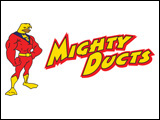So Doug Ford, the new premier of Ontario, is cancelling Ontario’s program of carbon pricing, Saskatchewan’s conservative government is taking the carbon tax question to the supreme court and Alberta’s conservative opposition is opposed to the carbon tax. Our Manitoba government is implementing a carbon tax, but one that significantly exempts farmers and some other polluters. Why are so many conservatives opposed to a price on carbon. To me, this opposition just does not make sense.
Whenever anything is manufactured, whenever we make anything, three things go into this: labour, resources and capital. If I build a shed, I will input labour, I will use resources, mostly wood in this case, and capital – the truck to haul the materials and the tools I use. This rule applies everywhere, no matter how small or large the project.
When our current tax system, with its focus on taxing income, was established (during the first World War), resources were abundant and labour was scarce. The young men were fighting in Europe. But the government needed money to finance the war. Given this reality, it made sense at that time for government to create incentives for manufacturers to use more of resources, which were abundant, and less of labour, which was scarce. In that environment, a tax on income rather than a tax on anything else made a great deal of sense.
But the environment today is very different. Today, the scarce component of manufacturing is resources, and we are concerned about keeping jobs. Labour is abundant. Manufacturers are moving their factories to other countries. Robots are doing more and more of the work. The reasons this is happening are, as always complex, but one of the reasons is the high cost of labour. One reason labour is expensive is because it is taxed. What counts to the worker is the take home pay, not the gross pay. Who hasn’t been offered a deal on a service that goes something like this “That will be $500, but if you pay me cash I’m OK with $400.” It’s not said, but we all know that in the one case the income will be reported and the appropriate tax will be paid. In the other case the income will not be reported, and no tax will be paid.
The point is, that the current tax on income increases the cost of the labour input whenever anything is built. And because resources are being taxed at a minimal rate, the cost of resource input is diminished.
Consider an example. Currently if a building stands in the way of a development the backhoe comes in and demolishes the building. The material is loaded onto a truck and taken to our burgeoning landfill. Why is it being done that way? Because it makes economic sense. The building material – the 2x4s, the rafters, the windows – may have a value, but the labour cost to recover that building material is too high for the developer to consider it. Now what would happen if the income tax currently paid by the labourers were instead applied to the cost of 2x4s, rafters and windows the developer is buying for the project? I don’t know exactly. Doing that kind of estimating is above my pay-grade, but it is obvious that such taxation would shift incentives.
This makes so much sense, so why are conservatives opposed to a revenue neutral tax on carbon? I can think of only one reason: that they believe they can score political points by opposing what is being proposed by the current Liberal government. If this is so, this is politics at its worst.



